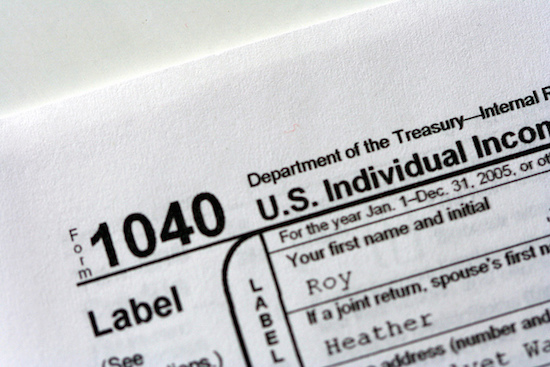It’s tax season and for many Americans, tax time can bring fear and dread, but for others, it’s a happy time that can be summed up in two words: money back! Most personal finance experts will tell you the same thing year after year: Set up your deductions so that come tax time, you break even or come out just a little ahead. Your money is better used in an interest-baring account than sitting with the IRS.
Rule 1: Try to Estimate Your Taxes Well.
But, many of us have come to look forward to the extra cash that comes our way in the form of a tax refund. Some of us may even look at it as a savings account the government so kindly created for us, and now we finally have access to that money.
You may be tempted to splurge on a much needed vacation or the new iPhone 6, but before dropping the dough, give yourself a reality check.
We know. Spending your return on something fun and immediate is very tempting, but make the financially responsible decision to put it towards something that will serve you better in the long run.
Rule 2: If You Do Get a Refund Don’t Blow It on Trivial Things.
Boost Your Emergency Fund
Ask yourself this: If my car were to unexpectedly break down today, do I have money to cover the costs to repair it? Life can hand you some tough or unexpected situations. Most personal finance experts say that you should have at least six months of expenses saved. While your tax refund may not get you all the way there, it’s a good place to start. If you are someone who lives paycheck to paycheck, putting money away in an emergency fund can be a very difficult and sometimes impossible task. A tax refund can be just what you need to finally start an emergency fund. If you just can’t put all of it into an emergency fund, take out 10% to use on fun stuff and put the rest away.
Chip away at that High-Interest Debt
If you’ve racked up debt on a high-interest credit card or find yourself knee-deep in student loans, it’s time to face the music. Put your tax return against your debt. Not only will you pay less on interest in the long run, you’ll lower your debt ratio — a major factor in improving your credit score. A higher credit score means that you’ll qualify for lower interest credit cards, car loans and mortgages, saving you money over time. Remind yourself of the big picture. It’s hard to save but the stress reduction of less debt is totally worth it!
Invest in Your Home
For homeowners, your home tends to be your most valuable asset. Preserve that value by spending some of your refund on small home improvements and repairs. A new coat of paint or upgraded flooring can do wonders for a home. Fix leaky plumping, clean dirty chimneys and spiff up the yard. Or, consider making energy-efficient improvements to your home that can also lead to money saved on your electric and gas bill over time. Thanks to the Residential Energy Credits, homeowners can receive a tax credit on qualified energy efficiency improvements. Also remember to check with your local utility company for additional rebates on home improvement projects.
Fund Your Retirement
Sometimes it’s easier to think of the now rather than the later, but a tax refund is a great way to add to your retirement fund. If we’re in our twenties, or even thirties, we tend to believe that it’s too early to put money towards our retirement. Truth is, the sooner we invest, the longer the money has to grow. Imagine the money multiplying for 50 years before you retire instead of just 20. What a difference that would make!

